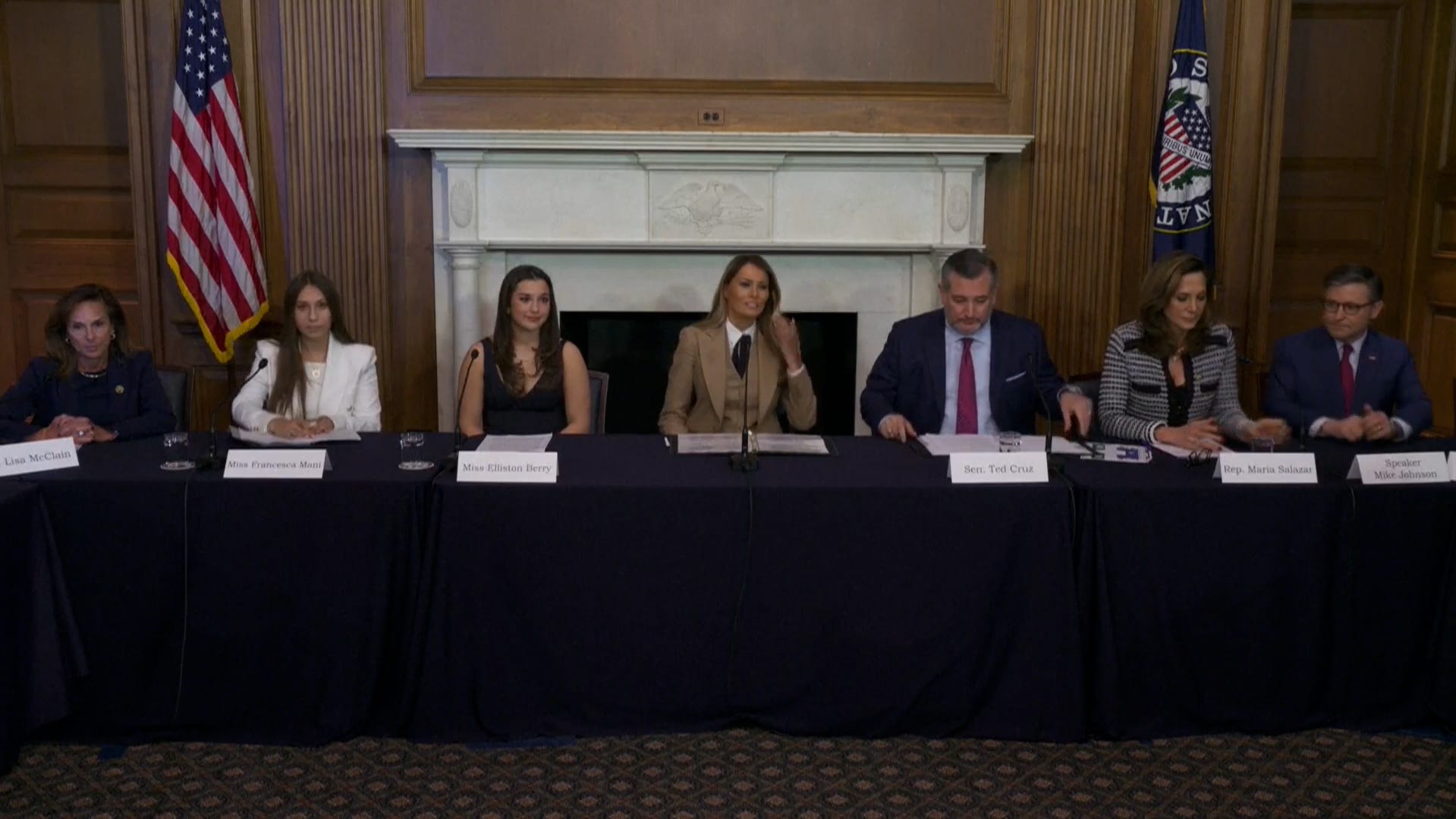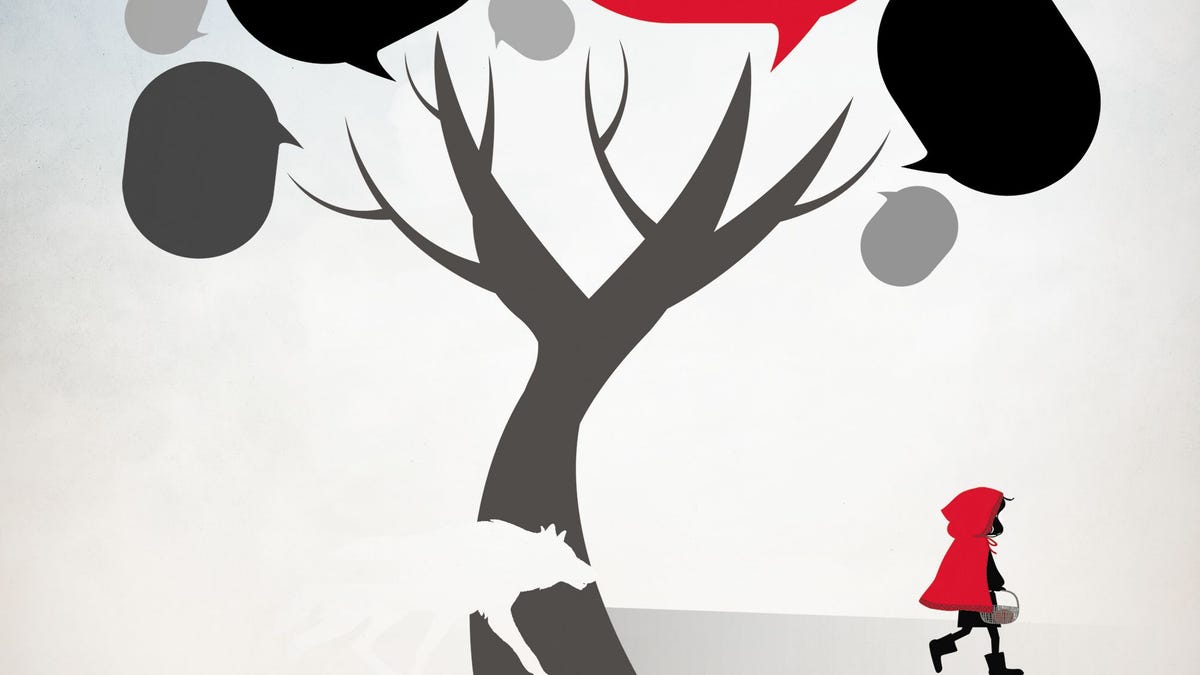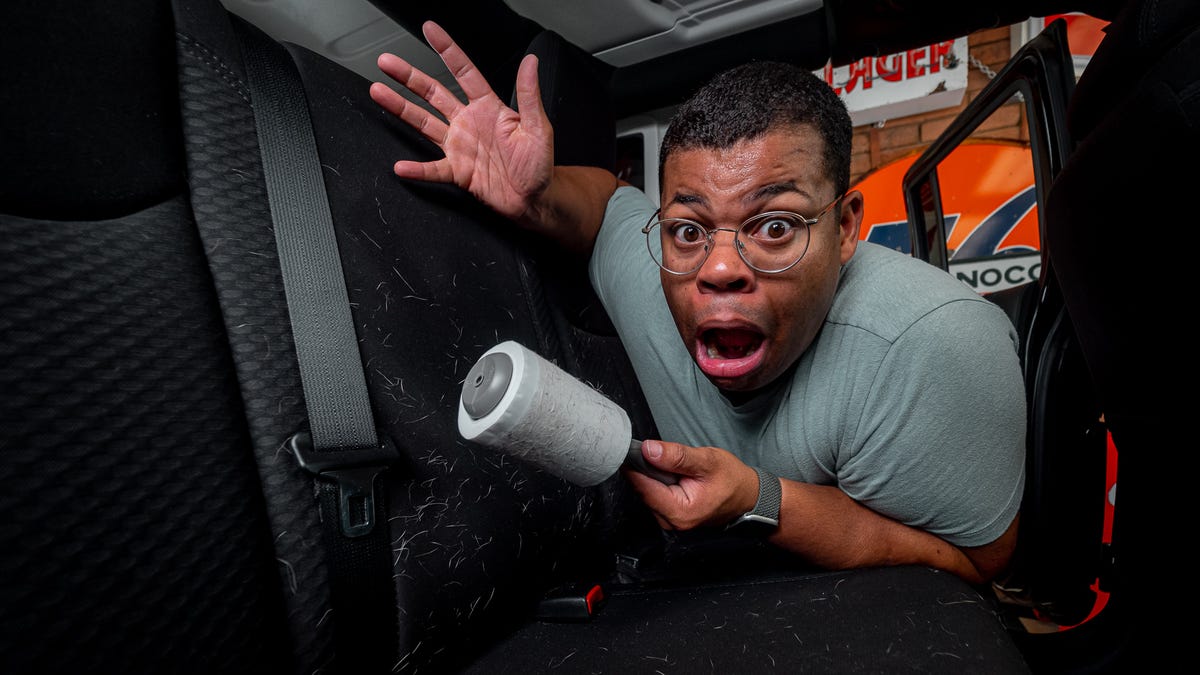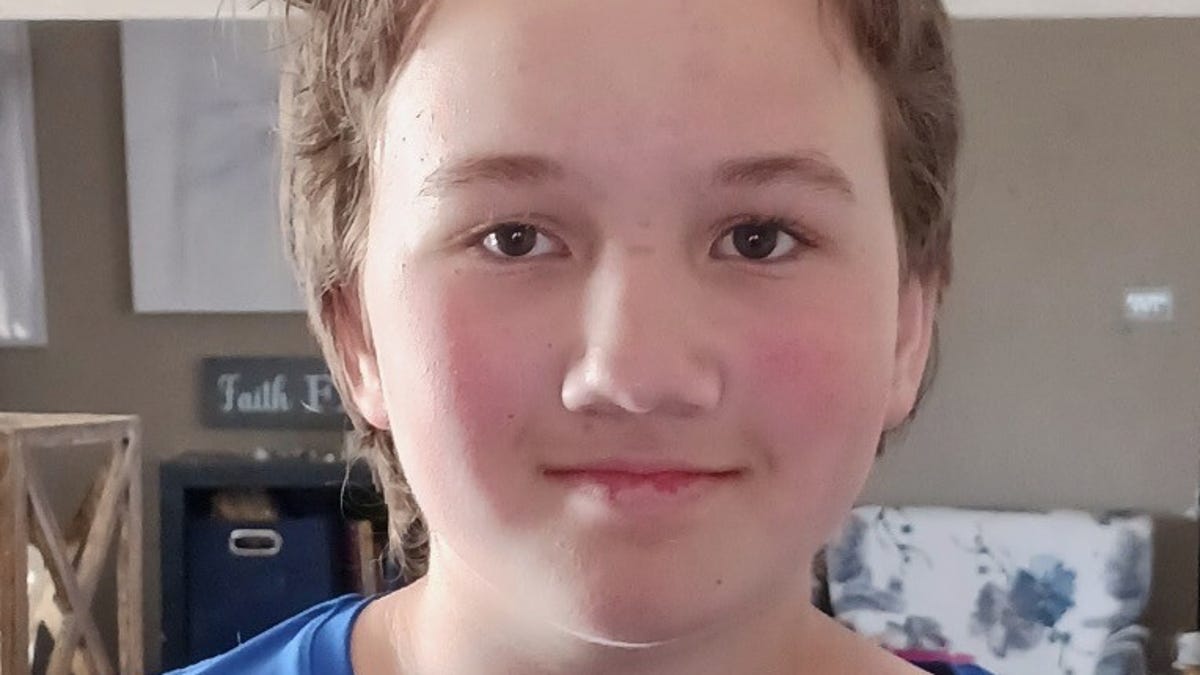As technology evolves, so do predators. In addition to targeting kids on social media, they increasingly use artificial intelligence to generate explicit images from otherwise innocent photos.

Melania Trump pushes for ‘Take It Down Act’
Melania Trump spoke out in favor of legislation that would criminalize the publication of nonconsensual deepfake sexual images.
The FBI recently announced that ithas launched more than 250 investigations into a loosely organized network of online predators who coerce minors into sharing sexually explicit images, acts of self-harm, the abuse of family pets and even suicide.
Every one of the bureau’s 55 field offices is handling a case related to the network − a disturbing sign of the growing scale and severity of child exploitation in the digital age.
Predators no longer need to be physically close to harm a child. They can reach kids through social media and online games, from TikTok and Discord to Roblox. They masquerade as peers or romantic interests, gain the minors’ trust and then manipulate and abuse them − whether they’re in a neighboring town or halfway around the world.
Kids are sexually exploited, abused online 10 times per second
Efforts to protect children online are falling woefully short. Worldwide, children are sexually abused and exploited on the internet about 10 times per second.
In the United States, the national CyberTipline, which tracks suspected online child exploitation, recorded a staggering 29.2 million reported incidents in 2024. That included more than 546,000 reports of “online enticement” of sexual acts − more than a dozen times the reports from 2021.
As technology evolves, so do predators. In addition to targeting kids using social media, they’re increasingly using artificial intelligence to generate explicit images from otherwise innocent photos of children.
Law enforcement is struggling to keep pace. There aren’t enough investigators and prosecutors to handle the volume and complexity of these digital crimes.
In response, a growing community of self-styled “pedophile hunters” is emerging online. Some pose as minors on dating apps or social media platforms − and then confront or expose adults who message them. Others track their targets down in person and violently attack them while broadcasting the assault online.
According to a New York Times analysis, pedophile hunters have mounted more than 170 documented violent attacks since 2023. The videos have collectively attracted millions of views.
In some cases, the targets have been misidentified. A YouTuber with more than 800,000 followers wrongly tagged an innocent 62-year-old man as a pedophile after reading a news story. The man subsequently received a barrage of death threats. The actual pedophile identified in the article was already in jail for his crimes.
‘Pedophile hunters’ add to the problem
Vigilantes may believe they’re administering justice. In reality, they’re interfering with investigations, putting bystanders in danger and − if turning to violence − committing crimes themselves.
Most important, vigilante violence does nothing to help children who are abused online. These kids don’t need mob justice, but rather a stronger legal approach and more resources for law enforcement.
Lawmakers have made some progress on this front.
Congress recently passed the bipartisan Take It Down Act. It criminalizes the publication of intimate photos, including AI-generated ones, of someone without their consent. It also requires social media companies to remove such images within 48 hours of a victim’s report. President Donald Trump signed it into law in May.
The new law is only a start, however. Congress also needs to hold social media companies accountable for protecting kids. This includes requiring stricter age-verification measures, which could prevent adults from posing as minors and contacting children.
Lawmakers also could require companies to actively monitor and remove child sexual abuse content from their platforms.
Additionally, the PROTECT Our Children Reauthorization Act would modernize law enforcement’s response to online child exploitation by boosting funding and resources for the Internet Crimes Against Children Task Force Program − the national network of federal, state and local law enforcement dedicated to investigating online child sexual abuse.
With nearly half of U.S. police departments staffed by fewer than 10 officers, we need federal support if we’re to keep pace with tech-savvy online predators.
Vigilante violence won’t deliver the justice children deserve. Real safety will come from strengthening law enforcement and making social media platforms safer.
Teresa Huizar is CEO of Washington, DC-based National Children’s Alliance, a network of nearly 1,000 children’s advocacy centers, providing justice and healing through services to child victims of abuse and their families.










